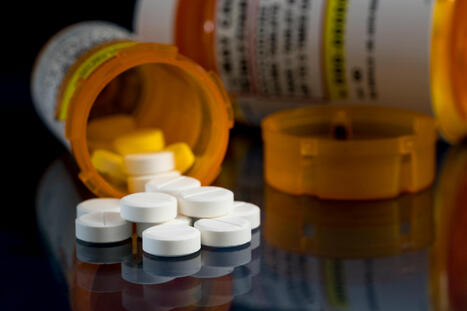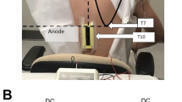 Your new post is loading...
 Your new post is loading...
Understanding why treatment fails can change how we think about relapse, recovery and the psychology of addiction.
Substance Use Disorders (SUDs) and Addictions are a major public health concern, affecting people’s health and well-being at all ages. The intention behind this collection was to publish original research articles on SUDs and related addictions. These articles would address genetic, neurobiological, psychological, and environmental risk factors for the development of these disorders, as well as approaches to diagnosis and treatment. Thirteen articles covering a wide range of topics related to different SUDs and behavioral addictions, as well as human and animal studies from basic and clinical research, were received and have been summarized in this editorial. Each of the articles has made a significant contribution to our scientific understanding of addiction, with the potential to inform clinical applications. We hope that the findings revealed by this collection of articles, along with the broader efforts of the scientific and clinical communities around the world, will lead to the development of better tools and methods for preventing, diagnosing, and treating substance use disorders (SUD) and behavioral addictions.
A Stanford addiction researcher said our brains are hardwired to get hooked on doomscrolling. Here's how to take a break and when you might need one.
Experts agree that addiction is a disease, yet the disease model doesn't capture addiction's harmful effects on others. Downplaying the effects paradoxically increases stigma.
A philosopher advocates for a more humane and context-informed approach
OD2A: Overdose Data To Action is a nationwide CDC and Department of Health and Human Services funded program that was created to address the overdose crisis
The deaths of Rob Reiner and Michele Singer Reiner underscore the strain of raising a child with addiction. Here are expert tips for a path to recovery.
Key Takeaways Research demonstrates that Intensive Outpatient Programs (IOPs) achieve comparable success rates of 50-70% to inpatient treatment for most individuals with substance use disorders, with outcomes varying based on program quality and individual commitment IOPs offer significant cost advantages with complete programs averaging $3,000-$10,000 compared to higher inpatient costs while allowing patients to maintain […]
Most people think addiction means a person has severe withdrawal when not taking alcohol or drugs. But withdrawal symptoms occur with ADs and many non-addicting medications.
The withdrawal symptoms of benzodiazepines are physically and emotionally painful and can be life-threatening if the user stops “cold turkey.”
A study by the Society of Actuaries (SOA) Research Institute found that fentanyl and synthetic opioids continue to be a leading cause of overdose deaths in the U.S., despite drug-related mortality decreasing in 2023 and provisional data suggesting a further decrease in 2024.
Charlie Health reports summer increases substance misuse, with higher risks of trying drugs and alcohol, heat-related hospital visits, and varied patterns among groups.
Across Alameda County and the U.S., more teens are quietly turning to opioids, often as a way to cope with overwhelming stress, trauma, and pressures that constantly surround them. In fact, The New England Journal of Medicine states that opioid overdose deaths among teens has more than doubled in recent years and continues to increase […]
|
Religious participation is associated with lower rates of alcohol and drug misuse.
Explore the impact of alcohol addiction on brain function and how new research can guide future treatments.
One in four U.S. adolescents is exposed to violence in their neighborhood, and those teens are more than twice as likely to use cigarettes, alcohol or drugs to cope, according to a new study from The University of Texas at Arlington.
Twenty years ago on January 16, I rattled into a church basement, unable to make eye contact, and sat in a windowless room surrounded by a random cross section of humanity.
If you’re questioning your relationship with alcohol, here’s what to look for.
The holiday season is a time for celebration, but for those struggling with substance use disorder, it’s one of the most stressful times of the year.
Drug addiction among youngsters is tearing families apart and stealing futures before they even start. In the U.S., over 5 million youth under 18 have misused prescription drugs in the past year, per a 2024 CDC report. Opioids, synthetic cannabinoids like spice, and even vaping nicotine top the list, hitting teens hardest as they navigate [...]
Many surgeons recommend giving up smoking, alcohol, or drugs before surgery, but researchers have found this may also increase the need for pain medication.
Over-the-counter medication can be highly addictive, that is the message from the Department of Health.
Alcohol mortality rates have nearly doubled in the last 25 years. Who is most at risk?
PsychiatryOnline.org is the platform for all American Psychiatric Association Publishing journals, DSM, and bestselling textbooks, as well as APA Practice Guidelines, and continuing medical education.
There is active scientific debate about the nature of addiction as a mental disorder, but with comparatively little discussion of nosology itself. To contribute to the ongoing dialogue, this review provides a concise history of the formal medical diagnoses used to define addiction clinically and vanguard contemporary perspectives. The history of addiction as a medical diagnosis starts at the beginning of the 20th century in the first International Classification of Diseases (ICD) and was present in 1953 in the first edition of the Diagnostic and Statistical Manual (DSM). Across iterations of both systems, the evolving nosology can be broadly divided into three epochs, an early primeval period (1900–1948), reflecting coarse definitions subsumed within personality disorder; a phenomenological period (1948–1980), reflecting descriptive definitions; and an empirically-informed period (1980 to the present), comprising operational definitions of polythetic syndromes, increasingly informed by empirical findings. Contemporary priorities suggest an emerging fourth epoch, prioritizing a diagnostic nomological network of objective etiologically-informed tests via, for example, the Research Domain Criteria (RDoC) and Addictions Neuroclinical Assessment (ANA) frameworks. Both RDoC and ANA focus on using objective mechanistic indicators to decrease subjectivity in diagnosis and increase alignment between etiology and diagnosis. Next-generation diagnostic approaches are anticipated to enhance incisiveness in psychiatric diagnosis and in turn improve clinical outcomes. Tracing the vicissitudes of addiction nosology over the past century reveals an evolution that is both more humane and scientific, from moral weakness and personality defect toward diagnostic definitions and practices that are grounded in empirical evidence.
|






 Your new post is loading...
Your new post is loading...





















Four New Ways to Approach Opioid Use Disorders
Good article on approaching opioid abuses
Please also review our Substance Abuse Counseling Program